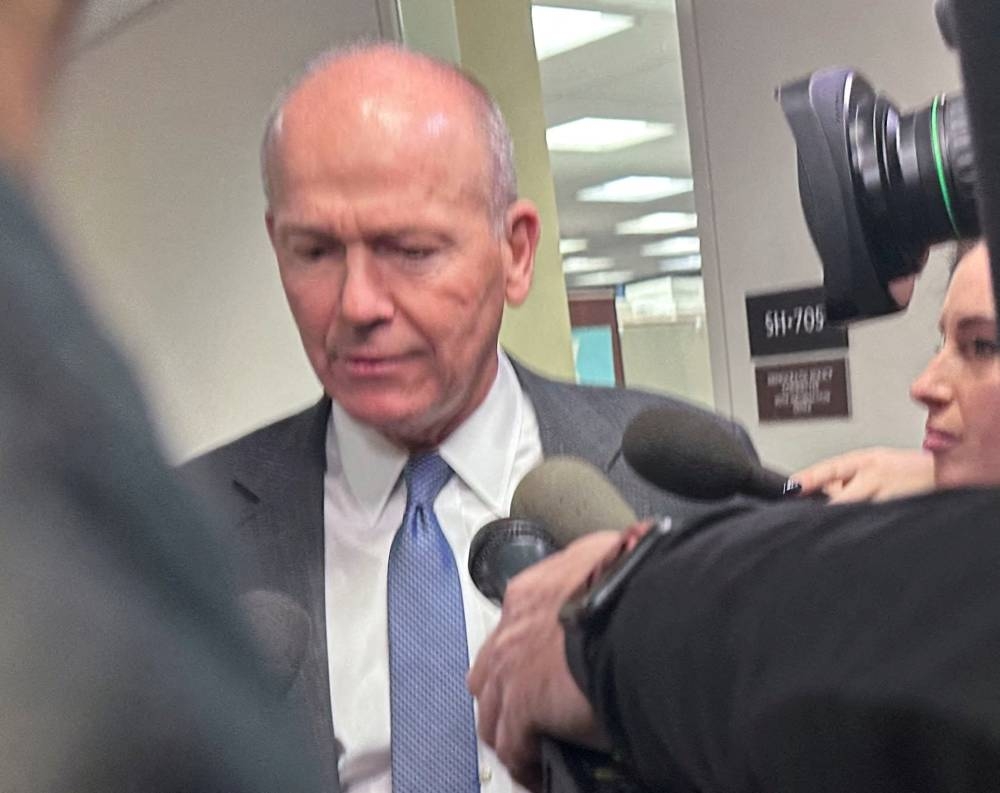Boeing CEO Dave Calhoun will step down by year-end in a broad management shakeup brought on by the planemaker's sprawling safety crisis exacerbated by a January mid-air panel blowout on a 737 MAX plane.
In addition, board chair Larry Kellner and Stan Deal, head of the company's commercial planes business, are also leaving as Boeing's board tries to get control of the myriad issues that have shaken confidence in the iconic planemaker over the last several weeks.
Boeing shares have lost roughly a quarter of their value since the incident. They were up 0.8% in early trading Monday, off earlier highs.
The January incident was only the most recent in a series of safety crises that have shaken the industry's confidence in the planemaker and hampered its ability to increase production. Calhoun, 66, was brought in as CEO following a pair of crashes in 2018 and 2019 that killed nearly 350 people.
Some investors expressed concern that this shake-up would not be enough to address these issues.
"When the ship has been running into icebergs not just once but multiple (times), then it's time to replace the captain of the ship," said Russell Hackmann, president of Hackmann Wealth Partners.
The company is facing heavy regulatory scrutiny and US authorities curbed production while it attempts to fix its safety and quality problems. The company is in talks to buy its former subsidiary Spirit AeroSystems to try to get more control over its supply chain.
Steve Mollenkopf, former CEO of tech company Qualcomm , has been appointed new chair of the board and is leading the search for the next CEO.
Scott Hamilton, managing director at aviation consulting firm Leeham Company, said in a note that the changes "speak to the depth of the crisis at the company following Jan. 5's accident ... But it also speaks to the thin bench for executive ranks."
Initially after the Jan. 5 panel blowout, several airline executives expressed support for Calhoun's leadership, saying he was the right person to fix the company's problems. But regulatory scrutiny surfaced additional troubling issues.
A US National Transportation Safety Board report of the Alaska Air incident found that the panel blowout was caused in part because several bolts meant to hold the plug in place were removed and not replaced - and there was no paperwork detailing what happened to those bolts.
The head of the NTSB told lawmakers in early March that the company had not provided records the agency had requested.
Following the incident, the FAA curbed Boeing production to a rate of 38 jets per month, but CFO Brian West said last week it had not even reached that figure. He added that the planemaker has been burning more cash than expected in this quarter than expected, saying it would likely fall short of cash flow targets for 2025 and 2026.
"For years, we prioritized the movement of the airplane through the factory over getting it done right, and that's got to change," West said last week.
Last week, a group of US airline CEOs sought meetings with Boeing directors without Calhoun to express frustration over the Alaska Airlines accident and management.
Analysts and investors called the shakeup positive for Boeing, but stressed that much depends on Calhoun's successor and changing the company's culture from the top.
"We think it will require someone with pedigree and patience, as fixing Boeing is probably a multi-year non-linear journey," said Vertical Research Partners aerospace analyst Robert Stallard, in a note to clients.
Some suggested Spirit AeroSystems CEO Patrick Shanahan, a former Boeing executive and US government official, now tasked with a complex tie-up deal with the US planemaker, as a possible successor to Calhoun.
Shanahan's "sole priority remains building a culture of safety" at Spirit, company spokesperson Joe Buccino said on Monday.

Boeing CEO Dave Calhoun speaks with reporters ahead of meeting with US senators on Capitol Hill in Washington, US, on January 24, 2024. REUTERS
